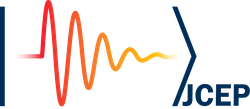Classical Electrodynamics (PHY8132 – Graduate course)
Motivation of the course
Formulation of the electromagnetism theory is an essential key to our understanding of nature, such as classical optics, microwaves and electric circuits. Both electric and magnetic forces were discovered millennia ago prior to being formulated by Coulomb and Bio-Savart. However, Maxwell showed that electric and magnetic fields are both generated and altered by each other. This revolutionary discovery led to a novel and unique branch of physics, named electrodynamics. In this course, we review several important concepts in the Classical Electrodynamics, among the others, such as Green’s functions, boundary-value problems, multipoles expansions, electrostatic of macroscopic media, magnetostatics, time-varying fields, Maxwell’s equations and gauge transformations, and covariant formulation of classical electromagnetism.
Main textbook
The course will be based on Classical Electrodynamics (3rd Edition) by John David Jackson (who is a Canadian–American physicist born in London-Ontario). Chapters 1, 2, 3, 4, 5, 6, and 11 of the book will be covered in the winter semester.
Class meeting time
The lectures will be held each Tuesday from 14:30 to 17:30 in Advanced Research Complex (ARC) 460. There will be a short break at 16:00 (about 7 minutes) halfway through the lecture.
Grading
The course grade will be determined based on (1) assignments and activities during lectures (20%), (2) midterm examination (30%), and (3) final examination (50%).
- Homework -1 (deadline 23rd of January 2018) [HWI].
- Homework -2 (deadline 2nd of March 2018) [HWII].
- Homework -3 (deadline 9th of March 2018) [HWIII].
- Homework -4 (deadline 16th of March 2018) [HWIV].
- Homework -5 (deadline 20th of March 2018) [HWV].
- Homework -6 (deadline 3rd of April 2018) [HWVI].
- Homework -7 (deadline 17th of April 2018) [HWVII].
Lecture notes
The course notes will be available a week after each lecture and can be downloaded via the following links:
- Lecture -1 [NOTEI].
- Lecture -2 [NOTEII].
- Lecture -3 [NOTEIII].
- Lecture -4 [NOTEIV].
- Lecture -5 [NOTEV].
- Lecture -6 [NOTEVI].
- Lecture -7 [NOTEVII].






